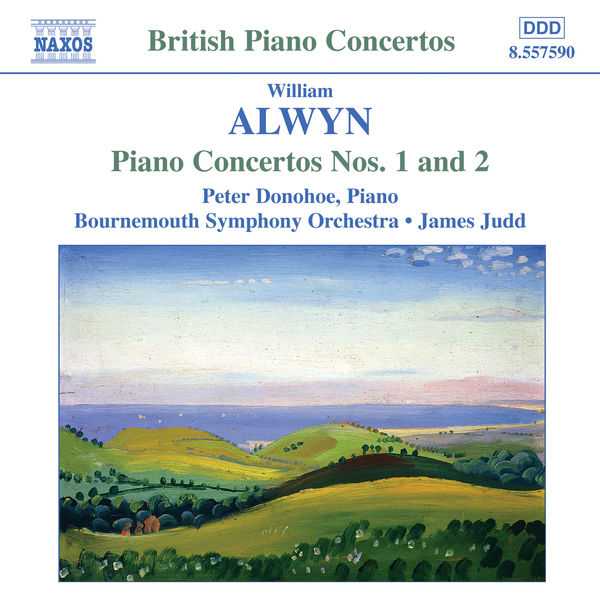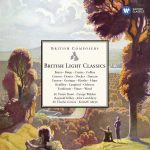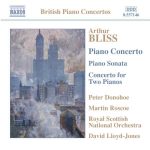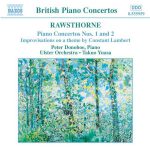
Composer: William Alwyn
Performer: Peter Donohoe
Orchestra: Bournemouth Symphony Orchestra
Conductor: James Judd
Format: FLAC (tracks)
Label: Naxos
Catalogue: 8557590
Release: 2005
Size: 202 MB
Recovery: +3%
Scan: yes
Piano Concerto No. 1 (1930)
01. I. Allegro deciso
02. II. Adagio e tranquillo
03. III. Tempo primo
04. IV. Adagio molto e tranquillo
05. Derby Day Overture
Piano Concerto No. 2 (1960)
06. I. Allegro
07. II. Andante
08. III. Allegro con fuoco
Sonata alla toccata
09 .I. Maestoso. Allegro ritmico e jubilante
10. II. Andante con moto e semplice
11. III. Molto vivace
The examples of William Alwyn’s music on this recording are much closer to late Romantic music than more modern music, even though their composition dates range from 1930 to 1967. Each of the two piano concertos and the Derby Day Overture cover a wide range of feelings with dramatic contrasts. That, combined with the flashy piano writing of the Concerto No. 2, the fully tonal harmony, and rich orchestral colors, makes them instantly appealing to most audiences. Pianist Peter Donohoe, conductor James Judd, and the Bournemouth Symphony Orchestra play them all full out, with sweeping passion, dreamy calmness, and theatrical tension by turns. Because the music is easily accessible to any listener, there is the tendency to write it off as being too simplistic and derivative for its time. However, below the surface there is more going on in these pieces. Most notably, especially in the Piano Concerto No. 1 and the Overture, Alwyn is able to create those widely varying moods and use widely varying instrumental colors with an incredible degree of thematic unity. Also in the Overture, Alwyn applies serial techniques within a diatonic framework. The liveliness and excitement of the piece disguise its more cerebral underpinnings. The Sonata alla toccata, too, has a more traditional structure and is less far-reaching in emotion than the other works here. Rather than being more restrained, however, its stricter organization and constant motion seem to allow Donohoe to take an extra measure of enjoyment and delight in playing it. He and Judd let the formal procedures underlying Alwyn’s music support its bravura sentiments.



